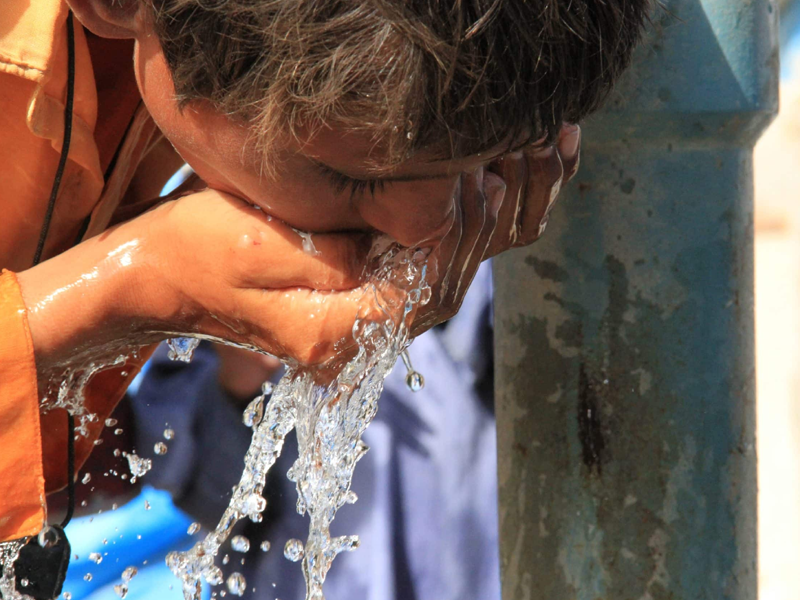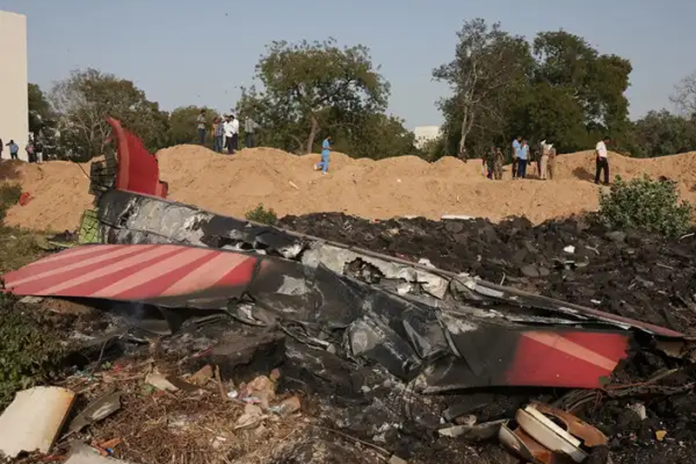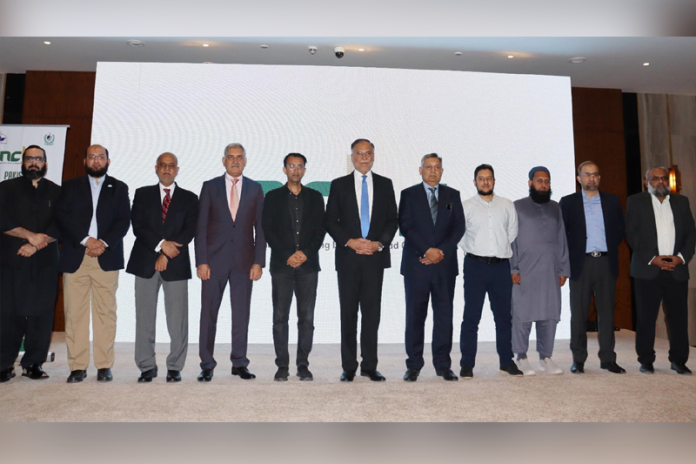Time to redress the water woes

- 239
- 0
Pakistan's water woes are no secret. There is no denying that our country is going to face severe shortage of water within next twenty years.
In urban centres, the biggest issue is the shortage of drinking water. Karachi also faces a similar issue. The World Bank is looking active regarding the "K4" project to provide water to Karachi. The other day, the World Bank delegation visited Dhabji Pumping Station, took a briefing and reviewed the ongoing works. The "K4" project is a plan to address water scarcity in Karachi, which will improve the city's water supply system and meet the needs.
Fresh water supply in Karachi was not enviable even at the time of establishment of Pakistan. Later it got worse day by day. Several projects were implemented in this chapter, but with the increasing population of the city, the need for water also increased. Due to the influx of people from every city of the country to get employment and some facilities in the city of Karachi with a population of around 20 million, numerous slums have been born. They also have settlements where basic facilities are lacking. At many places fresh water came out through boring, so people installed water pumps while at other places water is transported by various means including donkey carts which is expensive.
Phase one of "K4" 260 MGD is under construction in Thatta and Malir districts. Through the project, water will be supplied to Karachi through three reservoirs from a distance of more than 100 km (Keenjhar Lake Thatta).
A 650 MGD structure is being constructed in this chapter, the gravity channel of which will be built up to Keenjhar Pumping Complex. According to the briefing, early completion of four projects is among the priorities of the Water Corporation.
In view of the assurances of support given by the World Bank delegation, it is expected that the project will be completed soon. Meanwhile, experts say that serious efforts are needed to thwart the water issue which is going to aggravate in coming years across the country.
According to the World Health Organization, only 22 percent of Pakistan's population has access to clean drinking water, while 85 percent are facing problems.
Along with preventing wastage of water, recycling and construction of dams for agricultural purposes is our most important national need. Evidence shows that water scarcity is a major threat in Pakistan. The question is, how big a risk is it? How fast is it growing? And what should we do to deal with it or avoid it?
These are questions that need to be answered as soon as possible, before it's too late.
According to WWF, the available amount of water in Pakistan is 250 billion cubic meters, of which ninety percent is for agriculture, four percent for industry and the remaining six percent for domestic use. That is, only 15 billion cubic meters of water out of 250 are available for domestic use. If we talk about water for domestic use only, 70% of the 22 crore people do not have access to clean drinking water. According to the World Financial Organization, Pakistan is at the third place in the list of countries facing water scarcity. Along with this, according to UNDP and Pakistan Council of Research in Water Resources, Pakistan will suffer from water shortage by 2025. Researchers also say that if the situation continues and no measures are taken, by 2040 Pakistan will become the most water-scarce country in South Asia.
Overpopulation leads to increased demand, which puts pressure on water resources, agricultural land and energy sources, affecting livelihoods and spreading poverty. We have not educated the nation in this regard. Due to the increase in population, the water has decreased. For example, due to the excessive extraction of water in the city of Lahore, the underground water level has dropped by 2.5 to 3 feet annually, and will face further shortages in the future. Water scarcity was already there, but the deficit was met by saplings, while the Departments of Forests, Agriculture and Food remained dormant.
Overpopulation has increased pollution. 93% of drinking water in urban areas of Karachi is contaminated. Contaminated water is a threat to people's health. Considering the increasing demand for water in households, agriculture and industries due to high population, it is known that by 2025, the demand-supply gap is expected to widen to 83 million acre feet (MAF). High population leads to pollution, Lahore city generates 7690 tons of waste daily due to its growing population, waste disposal is also a challenge.
Cities are burdened with traffic due to overpopulation, which increases fuel consumption, air pollution and waste of time. The city's economy is losing 47.9 million rupees annually due to traffic jams in Lahore. Same is the case with the country’s financial hub Karachi.
A comprehensive legal framework is needed to deal with the pressures of overpopulation on resources in Pakistan. Not only Pakistan, unbridled population is a worldwide issue. The human race is currently in the middle of a catastrophic explosion; this explosion is the issue of enormous growth in the human population that can also be a precursor to great troubles as the growing population has increased the burden on natural resources in every region of the earth.
The population growth rate is three lakh or three and a half lakh people per day, thus annually, the population of the world is increasing by 7 crores. The increasing number of people will need food, water, clothing and shelter, the difficulty is that a large proportion of this population growth is in areas that are already under resourced. The tremendous increase in population has made people suffer from hunger, disease, pollution and famine in different parts of the world. If this increase is not stopped, it is feared that the situation will become more tumultuous. Recently, the United Nations has also warned that the growing population and the dangerous shortage of water are bringing mankind closer to dangers. There is a risk of global wars over the distribution and differentiation of water resources.
Published in The Daily National Courier, March, 07 2024
Like Business on Facebook, follow @DailyNCourier on Twitter to stay informed and join in the conversation.

















































